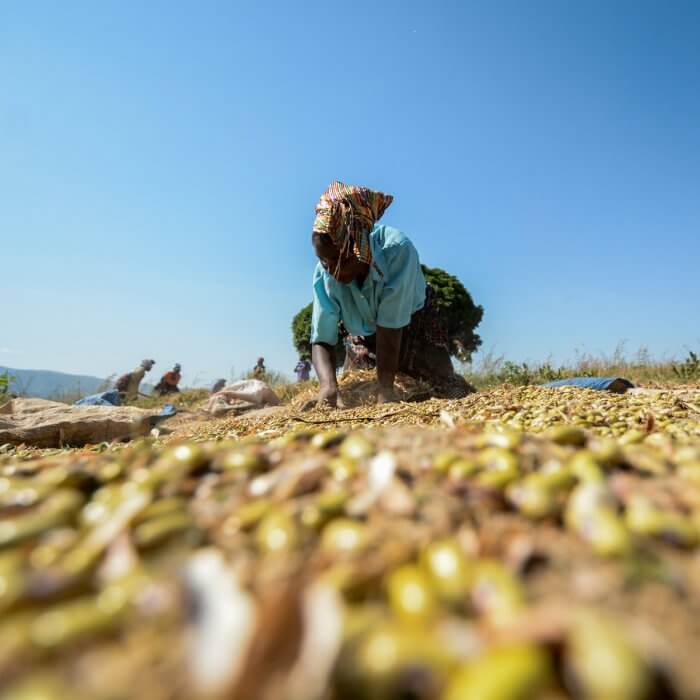Food, diet innovations key to food systems transformation
Top-of-mind issues ahead of the EAT Forum
As we prepare to head out to the EAT Forum in Stockholm this month, two issues are top of mind:
- How to accelerate the great food systems transformation required to reverse the dramatic increase in malnutrition globally
- How to more strategically shape the food and diets innovation landscape
The great food systems transformation
As we have written here, one of the biggest challenges facing our societies is to transform food systems so that empty calories and unhealthy foods become the “fossil fuels” of food systems, and healthy, nutritious and sustainably produced foods the “renewable energies” and the drivers of comparative advantage, investments and profits for the food industry. To achieve this, we need to act with levels of systemic ambition and urgency similar to those underpinning the efforts of the climate community to decarbonize energy systems. No less.
The good news is that food systems transformation is rising on the global agenda in the next 8 months through an unprecedented sequence of high-level events: the Eat Forum in June; the launch of the report of the Eat Lancet Commission on Food, Planet, Health anticipated in the Fall; the Global Climate Action Summit in San Francisco in September; the G20 summit in Buenos Aires in late November, and the COP24 meeting in Poland in December.
To make the most of these upcoming opportunities, we need to accelerate the convergence of efforts from five key communities: climate; agriculture; health, nutrition; and the food industry. Right now, it feels like many of the conversations and efforts are largely operating in parallel. The agendas of the Global Climate Action Summit, G20 and COP24 are likely to focus mostly on land use sustainability aspects. The nutrition and health communities are working on affordable nutritious and healthy foods. And the food industry is still poorly engaged in this agenda with basic principles of engagement still being debated.
The upcoming Eat Lancet Commission report will be the first attempt at integrating the issues of planetary and human health through food systems and diets in a comprehensive framework. We look forward to the soft launch of the findings of the commission at the Eat Forum and to the full launch of the report later in the year. If the Commission report is expected to clarify the science and offer main boundaries for future plans, it is not expected to address the political economy of food systems, and start mobilizing stakeholders around a unifying narrative.
There is no time to waste. We need to:
- Start bringing together the different communities around the development of unifying and ambitious narratives for sustainable and healthy food systems and diets.
- Make sure the health and nutrition dimensions of food systems are appropriately featured in the high-level events later in the year
- Use these high-level events as opportunities to start socializing these new narratives and organizing.
The role of food and diets in the food system transformation
Given that every second person in the world is anticipated to be suffering from at least one form of malnutrition by 2030 — with population growth, accelerated urbanization, climate change as key drivers — we will need breakthrough innovations to halt and reverse current trends.
Fortunately, there are a growing number of initiatives focusing on food and diets innovations (see the table below) across the whole value chain, and there are also a growing number of platforms that are aiming to create networks of innovators and funders in this space. However, information about what is going on is not easily accessible and scattered, leading to duplication of efforts, major inefficiencies and gaps.
There is no good map or landscape of the food and healthy diets innovations across the value chain today, globally or by region or countries to tell funders, innovators, implementers and governments what’s in the innovation pipeline, who are the key investors or funders of food and diets innovations, which platforms and initiatives are supporting innovations at what stages, and what are the learnings from these different innovations? This is a massive challenge for all stakeholders.
Another challenge is that investment — particularly around innovation — is skewed toward higher income countries, and the ability of innovators and innovations to reach vulnerable populations in low-income countries is limited.
A key challenge for innovators, funders, policymakers and other players involved in food and diets innovation in low-income countries is making the right connections and getting the right information — both of which are critical to innovators getting the resources and support they need to achieve broad impact. They are also critical to effective knowledge sharing between stakeholders, such as global and local players, members of a community of practice, and innovators and policymakers working in different places.
Does this resonate? Are you interested in the food and diets innovation space? We are interested in your views.
Here are a few existing initiatives focused on food and diet innovations:
| Initiatives | |
| Platforms and Networks | |
| Challenges and Prizes
|
|
| Superfoods and Protein Specific Initiatives | |
| Agriculture Innovations |
|
Photo © CIAT














